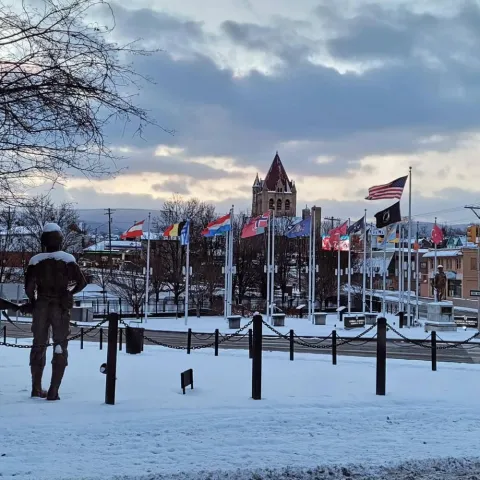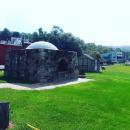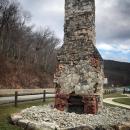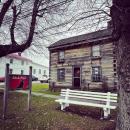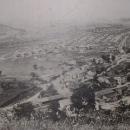Fayette
Created in September 1783 from the southern portion of Westmoreland County, Fayette County was named for the Marquis de la Fayette, the young Frenchman who assisted General George Washington during several major battles of the American Revolution. Uniontown, established as Beeson's Town in 1776, became the County's seat.
The County's first industrialization emerged as the 19th century approached, with iron furnaces being built in the mountains to capitalize on the numerous iron ore deposits and abundant forests that provided a wood source for charcoal. The local glass industry, which later brought national recognition to the upper Monongahela River valley, was first established when Albert Gallatin opened his New Geneva glassworks in 1794. Within the next 20 years, numerous glass factories were erected at various points along the river. The National Road, constructed through the heart of the County about 1815, brought huge numbers of travelers on the way to the newly opened Northwest Territory and ensured the continued growth of Fayette County.
However, the most significant boom to Fayette County's growth and economy came from the discovery of the coke-making process. Vast deposits of bituminous coal underlie much of the County, leading to the development of an internationally renowned coal and coke industry around the turn of the 20th century. As the coal fields expanded, thousands of European immigrants came to Fayette County to work in the mines. New towns appeared seemingly overnight to accommodate the miners - small communities of "company houses" built by the coal companies to house the new labor group. Fortunes were made in Fayette County coal, which became one of the essential ingredients upon which the Pittsburgh steel empire was built.
The coal and coke boom began to peter out as the effects of the Great Depression took hold. By 1950, most of the large Fayette County mines had been played out, and the County's economy took a significant downward turn from which it is still recovering today. The future of Fayette County lies in tourism and industrialization, supported by an efficient network of roads and rivers that crisscross the County. The lush mountain setting and abundant recreational opportunities attract new high-tech businesses to the area, which boasts a young workforce eager to play as hard as they work.Local historical societies work hard to preserve iron furnaces, brick ovens, and early loghouses as witnesses to the County's history. Fayette County has many historical sites, museums, and galleries to visit and learn about its industrial heritage, early settlers' life, and local artists' creationс.
